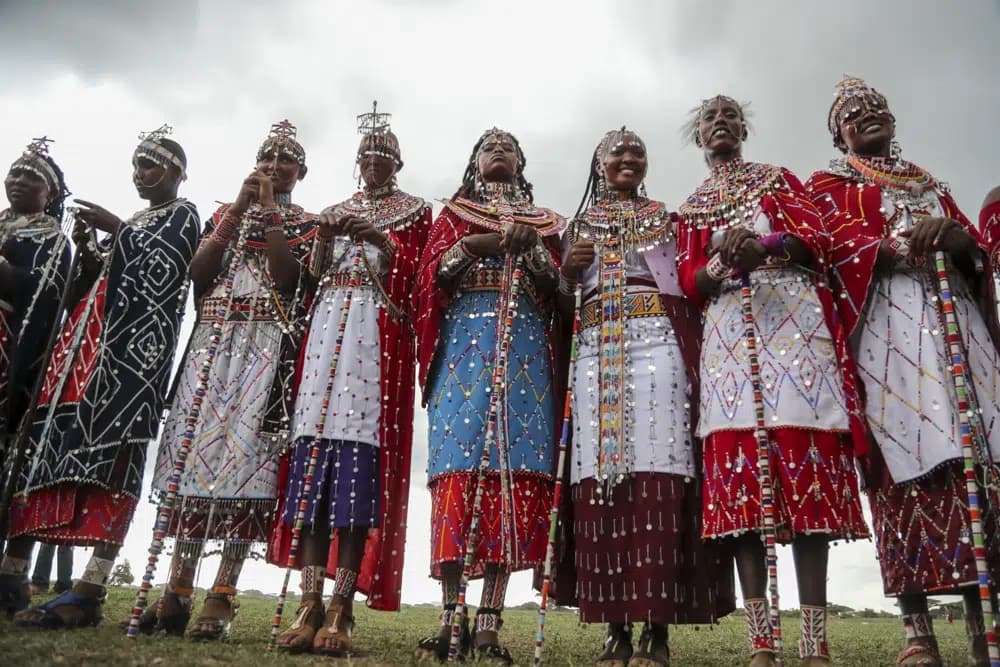YAOUNDÈ, Cameroon – A faith-based group composed of almost 50 Catholic religious congregations has condemned what it calls the “systematic approach” of the Tanzanian government to drive members of the Maasai ethnic group from their traditional homelands.
The Africa Europe Faith and Justice Network (AEFJN) asserts that government policies not only are driving the Maasai from their homes but also crippling essential social infrastructure, much of it managed by the Catholic Church.
The Maasai are an indigenous people who live in northern, central and southern Kenya and northern Tanzania, and do originally reside near the many game parks of the African Great Lakes.
In Tanzania, the Ngorongoro Crater to the north of the country isn’t only home for a wide spectrum of wildlife, it is also called home by the semi-nomadic Maasai people.
The crater was declared a UNESCO World Heritage site in both 1979 and 2010. Ironically, that status now threatens the indigenous Maasai people, who preserved the conservation area for centuries.
In 2019, the UNESCO World Heritage Centre, the International Union for the Conservation of Nature (IUCN), and the International Council on Monuments and Sites (ICOMOS) came up with a joint monitoring report which called for “stringent policies” to control population growth and its impact on the Ngorongoro Conservation Area.
In response, the Tanzanian government came up with a plan that would involve the eviction of more than 80,000 men, women, and children, while imposing restrictions which, according to critics, threaten the survival of the Maasai who remain.
The Brussels-based AEFJN has taken exception to that approach.
“The most recent effort is the shutting down of critical social services such as water supply, education and health services to forcefully eject the Massai communities in the Ngorongoro conservation from their ancestral lands,” the AEFJN said in a Feb. 16 statement.
“While the AEFJN condemns this systematic approach of the Tanzanian government to remove the Massai communities out of their homelands forcefully,” the statement said, “we are more concerned about linking this draconian government action to the health services principally provided by the Archdiocese of Arusha.”
The statement explains that the Archdiocese of Arusha built the Endulen Catholic Hospital “in response to the healthcare needs of the Maasai communities living in the Ngorongoro conservation area.”
Initially, the government collaborated with the church in providing healthcare to the Maasai by appointing paid staff to the hospital to complement the efforts of the church.
“Endulen is the only hospital in the conservation area that serves the Massai,” the statement noted, expressing concern over the government’s decision to remove the paid health workers and thus cripple the hospital.
“In addition, the government of Tanzania has further pressured the Archdiocese of Arusha to scale down and eventually stop its emergency services at the Endulen Catholic Hospital so that the hospital sinks to the level of a dispensary,” it said.
The AEFJN said the series of events has led to a “negative perception of the church among the Masai communities and the broader human society, that the church may have accepted the government’s position and abandoned the Masai to their ill-fated lot… our most urgent concern is to see that the Maasai communities in the Ngorongoro Conservation are not denied health care services and, as a consequence, forced to leave their ancestral lands.”
The statement said the government was basically violating the provisions of the UN Declaration on the rights of indigenous peoples and the regulations in place in the Ngorongoro Conservation area that state that “no decision can be made without proper involvement, consultation, and the consent of Maasai communities”.
It said what the government was doing amounted to “forced displacement” of the Maasai indigenous peoples from their ancestral lands.
“It threatens their lives, cultures, and the many benefits they have brought to their environment, including conserving wildlife and territories. It is a violation of their fundamental rights and their rights derived from the conservation regulations.”
The Tanzanian government says some of the Maasai have volunteered to relocate to settlement sites in Msomere, in Handeni district and Kitwai in Simanjiro, but they are in conflict with the tribes already settled in those areas.
Tanzania isn’t the only country forcefully evicting the Maasai. In Kenya, Maasai also face similar eviction threats over government projects, making them “one of the endangered tribes in Africa.”
“Africa is gaining notoriety for exterminating small indigenous tribes with natural resources in their ancestral land. There have been cases of the Baka forest pygmy tribe of southeast Cameroon, the Sengwer tribe of Kenya, the San Bushmen in the Kalahari Desert, Botswana and the Ogiek of Kenya, all displaced for the governments and mega conglomerates,” the statement said.
“The silence of the international community is a loud cacophony,” it emphasized.













